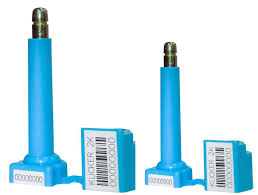ISO 17712 is an internationally recognized standard that sets forth specifications for the design, manufacturing, and testing of security seals used for containerized cargo. These seals play a crucial role in maintaining the integrity of cargo shipments and preventing tampering, theft, and unauthorized access. However, when these security seals reach the end of their useful life or need to be decommissioned, proper disposal becomes a critical consideration to ensure security and environmental responsibility. This article delves into the considerations surrounding the disposal and decommissioning of ISO 17712-certified security seals.
1. Security and Integrity:
The primary concern during the disposal and decommissioning of ISO 17712-certified security seals is to maintain the security and integrity of the cargo and shipping processes. Seals may contain sensitive information, such as serial numbers or barcodes, that should not fall into the wrong hands. Therefore, a secure and controlled process must be in place to remove and dispose of the seals without compromising the security of the cargo.
2. Compliance with Regulations:
When disposing of security seals, it’s important to adhere to local, national, and international regulations. Depending on the type of seal and the materials used in its construction, there may be specific guidelines for proper disposal. Following these regulations helps prevent environmental pollution and potential legal liabilities.
3. Material Composition:
ISO 17712-certified security seals can be made from a variety of materials, including metal, plastic, and composite materials. The composition of the seal affects how it should be disposed of. For example, metal seals may be recyclable, while certain types of plastic seals might need to be sent to specialized facilities for proper processing. Understanding the material composition is essential in making informed disposal decisions.
4. Recordkeeping:
Maintaining accurate records of the disposal and decommissioning process is vital. This documentation can be crucial for auditing purposes, ensuring that seals are being disposed of properly, and tracking the end-of-life journey of each seal. Proper recordkeeping also aids in maintaining transparency and accountability throughout the supply chain.
5. Destruction Techniques:
To ensure that security seals are irreversibly decommissioned, appropriate destruction techniques should be employed. This could involve methods such as cutting, shearing, or crushing, depending on the material and design of the seal. Destruction should be carried out in a controlled and secure environment to prevent unauthorized individuals from salvaging any parts of the seal.
6. Environmental Impact:
Considerations for the environmental impact of seal disposal are essential. While security remains paramount, efforts should also be made to minimize the ecological footprint. This might involve choosing recycling options over direct disposal or opting for eco-friendly destruction methods when possible.
7. Supply Chain Transparency:
Maintaining transparency within the supply chain is important for various reasons, including accountability and compliance. All stakeholders involved in the supply chain should be aware of the procedures and protocols in place for seal disposal and decommissioning. This ensures a unified approach and prevents any misunderstandings.
8. Collaboration with Stakeholders:
Collaboration among stakeholders, including manufacturers, shippers, and logistics providers, is crucial in establishing effective disposal and decommissioning processes. By working together, the entire supply chain can contribute to the development of best practices and protocols that align with ISO 17712 standards.
Conclusion:
the disposal and decommissioning of ISO 17712-certified security seals require careful consideration to balance security, regulatory compliance, and environmental responsibility. Stakeholders should prioritize maintaining the security of cargo while adhering to local regulations, understanding the material composition of the seals, and implementing proper recordkeeping and destruction techniques. By approaching seal disposal with a holistic perspective, supply chains can ensure both security and sustainability.












